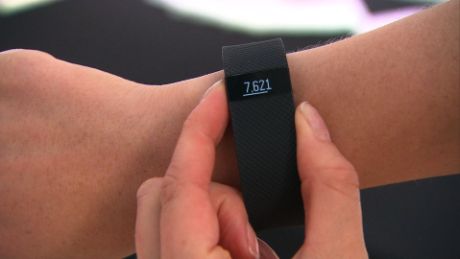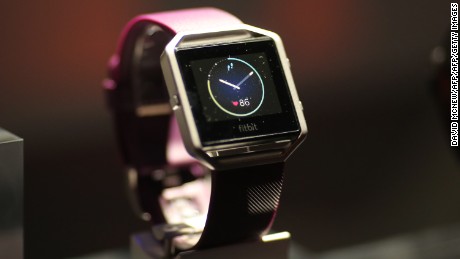(CNN)Wearable technologies can monitor your physical activity or your allergies. Increasingly, they are part of our everyday lives. But a new analysis comparing two sets of dieters discovered that those wearing activity trackers lost less, not more, weight than the tech-free dieters.
“We went in with the hypothesis that adding the technology would be more effective than not having the technology, and we found just the opposite,” said John Jakicic, author of the study, published in the Journal of the American Medical Association.
“One of the things we didn’t study here was, maybe these things are really effective for people gaining weight, but maybe that’s different from helping people lose weight,” said Jakicic, a professor and director of the Physical Activity and Weight Management Research Center at the University of Pittsburgh. “We need to do a lot more digging in the data to understand that.”
“That means that something is amiss,” said Berkeley, who was not involved in the new study. She explained that if there was “absolutely no difference” between what the two groups ate and how much they exercised, the average weight losses “should be the same whether the study subjects wore a device or not.”
Berkeley observed that studies on dieting are “notoriously hard to do,” so adding exercise into the mix makes accurate research doubly difficult. The main issue is that any long-term study must rely on the participants self-reporting what they ate and how much they exercised, so accuracy is naturally a problem.
Wearable but in the drawer
Jakicic is eager to look more closely at the data, but he and his colleagues have come up with a few hypothetical explanations for the unexpected result.
“Anecdotally, these devices tend to work or people tend to engage with them for about three months or so, and after that, a lot of people start throwing them in the drawer. They get bored with them,” Jakicic said.
Another possibility: Not everyone likes wearables. Instead, many people feel ” ‘I got this device, and I just hate it,’ ” he said.
Berkeley, the author of “Refuse to Regain: 12 Tough Rules to Maintain the Body You’ve Earned,” noted that “weight loss is much more dependent on scrupulously following a weight-reducing diet than on exercise.” Generally, she said, diet is more important than exercise during the active weight loss phase, but exercise becomes much more important during weight maintenance.
“It’s entirely possible that those who were paying more attention to the exercise part of their regimen [because of the wearable device] were less scrupulous about their intake,” Berkeley said. She added that exercising can often cause dieters to “feel that they’ve ‘earned’ the chance to eat more.”
Read more: http://edition.cnn.com/
The post Could your fitness tracker sabotage your diet? appeared first on BestPaleoCookBookReviews.co.uk - Delicious Paleo Recipes.
source http://www.bestpaleocookbookreviews.co.uk/could-your-fitness-tracker-sabotage-your-diet/




No comments:
Post a Comment